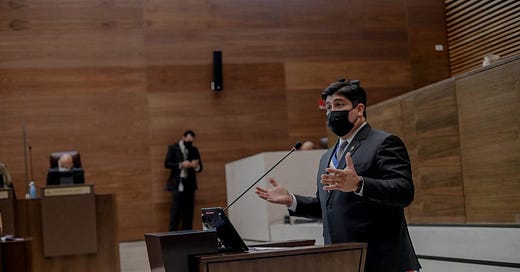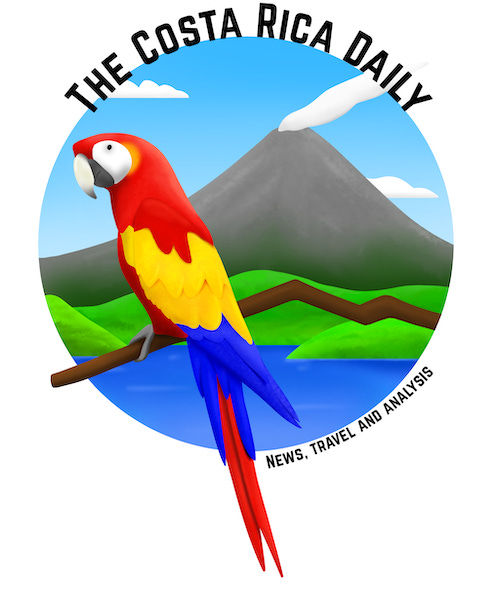The 5 most interesting points from the State of the Republic
President Alvarado discussed the pandemic, the economy, and more.
Costa Rican President Carlos Alvarado on Tuesday delivered his State of the Republic.
The annual speech, directed at the Legislative Assembly (Congress) and the Costa Rican public, is an opportunity for the president to highlight his administration’s accomplishments and offer solutions to the country’s biggest issues.
Here are five of the most interesting topics from his address:
Herd immunity by end of the year
President Alvarado expects Costa Rica to reach herd immunity against the coronavirus between October and December of this year. At that point, enough people will have antibodies to halt spread of Covid-19.
“We plan to achieve herd immunity in the last quarter of this year,” he said. By then, Costa Rica could reasonably lift remaining business and mobility restrictions.
All elderly adults will have received at least one dose of the vaccine within the next two weeks, Alvarado said. Costa Rica hopes to vaccinate at least 80% of its 3.7 million adults by the end of the year.
Alvarado said global supply constraints have slowed Costa Rica’s vaccination efforts but that the country will inoculate more people in May than in any previous month.
No more gravel roads?
Costa Rica’s road infrastructure is lacking, to put it kindly. Alvarado said his administration is securing funding that will allow all national routes to be paved by 2026.
More than 600 kilometers of asphalt seal have been placed so far on gravel roads during the Alvarado administration, he said, a “fact that gives us hope and demonstrates Costa Rican capacity.”
The president emphasized that a modern transportation system will go hand-in-hand with the country’s decarbonization goals. Key to that system are the Metropolitan Electric Train, the Limón freight train, and an expanded national passenger railway that his government have promoted.
Unemployment remains major concern
Alvarado said his government has sought the “best possible balance” between health and the economy during the pandemic. Still, the unemployment rate is 18.5%, among the highest in the region.
That “remains too high,” Alvarado admitted, calling unemployment one of the biggest issues facing Costa Rica after the pandemic and general economic stability.
As a solution, Alvarado indicated Costa Rica’s role as an ecotourism destination will soon contribute to more job opportunities. He also discussed a regional economic strategy which he hopes will “bring productive development and employment to all regions.”
“That in every corner of our country there are quality opportunities for all people, without any distinction: this is the fundamental objective that we must pursue today and in the coming decades,” Alvarado said.
IMF loan on the horizon
Alvarado argued in favor of the country’s deal with the IMF for $1.75 billion, calling a failure to meet the loan requirements “the most imminent and serious risk looming over Costa Rica.”
If Costa Rica cannot balance its finances through domestic policy and IMF financing, “the next government will enter its first year on a tenuous terrain, having to fix problems that we can and must solve today.”
The $1.75 billion is contingent on Costa Rica passing a series of fiscal reforms, most of which must be approved by a divided Legislative Assembly. Alvarado’s comments on Tuesday were another effort to support that legislation despite a general lack of political backing.
Reforming the Constitution?
Finally, Alvarado suggested that Costa Rica consider reforming its Constitution.
“The time may have come to discuss and rethink our Constitution for the time we live in,” he said.
Alvarado’s argument is that the current system has led to stagnation, since the president’s party is often a small minority within the unicameral Congress. As a result, the Executive Branch has to rely on opposition parties to advance nearly all legislation.
In its place, Alvarado posited a semi-parliamentary model, one in which power would be shared between the prime minister, president, cabinet, and legislature.
To be clear, this suggestion remains just that, and there is no indication Alvarado (or anyone) is taking any actual steps toward such a significant change. Still, it was a noteworthy idea from a president during the final year of his term.
Support The Costa Rica Daily
Please support our 100% ad-free publication:





